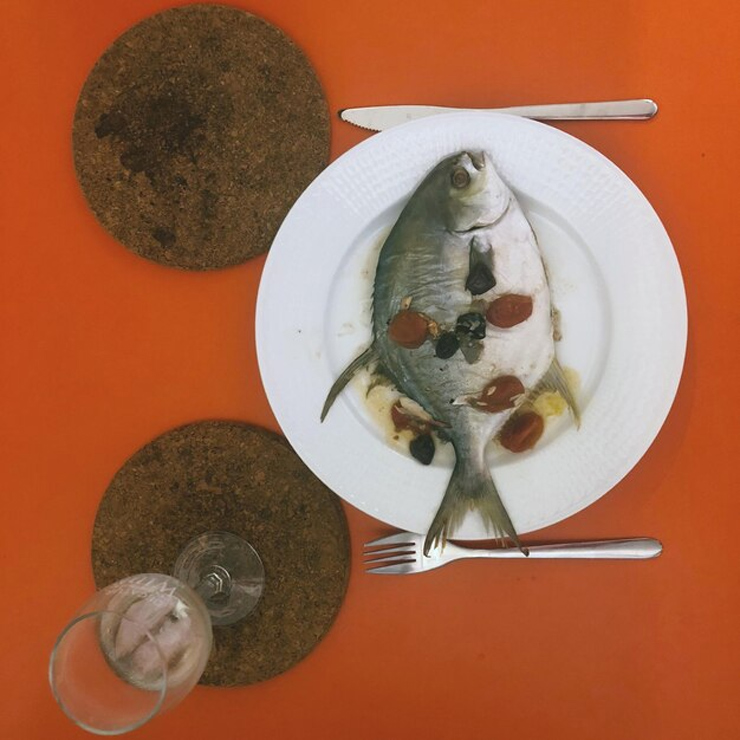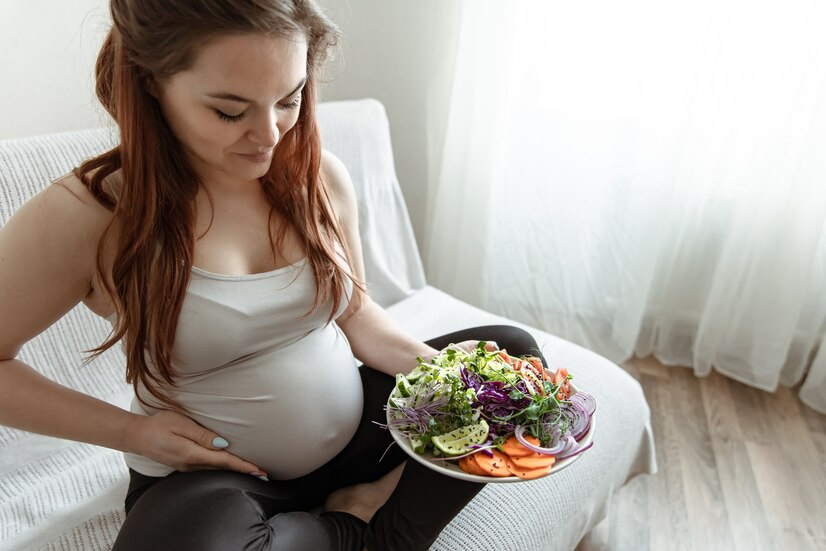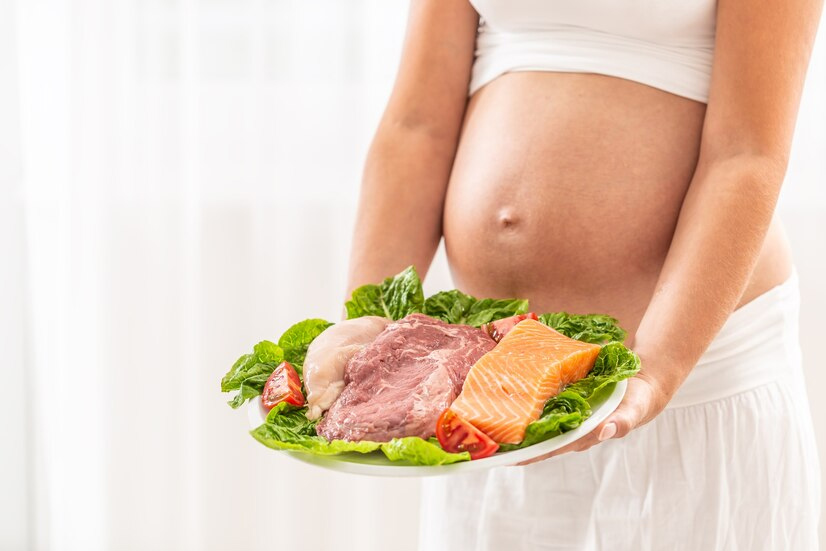
Pregnancy is an exciting journey, full of changes and new beginnings. It’s a time when your body works wonders to nurture the little life growing inside you. Taking care of yourself is not just about resting and staying happy, it’s also about eating right. What you eat can make a big difference in how healthy you and your baby are during this special time. Each trimester of pregnancy is unique, with different stages of your baby’s growth and different nutritional needs for your body. By understanding what to eat and what to avoid, you can give both yourself and your baby the best start possible.
Table of Content:-
To understand what to eat and what not to eat, OnlyMyHealth team interacted with Dr Chetna Jain, Director of the Department of Obstetrics and Gynaecology, Cloudnine Group of Hospitals, Sector 14, Gurugram.
Dr Jain said, "Pregnancy is a time of significant physical changes, and proper nutrition plays a crucial role in ensuring the health of both the mother and the baby. The nutritional needs during pregnancy evolve with each trimester, as the baby’s development and the mother’s body undergo various stages."
Let’s explore the foods to eat and avoid during each trimester.
First Trimester (Weeks 1–12)
The first trimester is critical for the formation of the baby’s organs, nervous system, and other vital structures. It is also the period when many women experience symptoms such as morning sickness, fatigue, and food aversions.
Foods to Eat:

- Folic Acid-Rich Foods: Essential for the development of the baby’s neural tube, folic acid helps prevent neural tube defects. Include leafy greens like spinach and kale, fortified cereals, legumes such as lentils and chickpeas, and citrus fruits.
- Protein-Rich Foods: Protein aids in tissue growth, including the baby’s organs. Incorporate lean meats, eggs, tofu, beans, and dairy products like yogurt.
- Whole Grains: Foods like brown rice, quinoa, and whole-wheat bread provide necessary carbohydrates and fibre, helping to maintain energy levels and prevent constipation.
- Dairy Products: Rich in calcium, dairy products like milk, cheese, and yogurt support the baby’s bone development. Alternatives like fortified almond or soy milk are suitable for those who are lactose intolerant.
- Hydrating Foods: Water-rich foods such as cucumbers, watermelon, and oranges can help combat dehydration, which exacerbates nausea and fatigue.
Foods to Avoid:

- Raw or Undercooked Seafood and Meat: These can harbour harmful bacteria or parasites, posing a risk of foodborne illnesses such as listeriosis or toxoplasmosis. Avoid sushi, undercooked eggs, and rare meat.
- Unpasteurised Dairy and Juices: Unpasteurised products can carry harmful bacteria like Listeria.
- Caffeine: High caffeine intake can increase the risk of miscarriage or low birth weight. Limit caffeine consumption to 200 mg per day.
- High-Mercury Fish: Avoid swordfish, shark, and king mackerel, as their high mercury content can harm the baby’s brain development. Opt for salmon, shrimp, or tilapia instead.
Also read: 7 Lifestyle Changes to Make in Your First Trimester of Pregnancy
Second Trimester (Weeks 13–26)
Often called the "honeymoon phase" of pregnancy, the second trimester is marked by rapid growth of the baby and the maturing of organs and systems.
Foods to Eat:

- Iron-Rich Foods: Iron supports the increased blood volume and prevents anaemia. Include lean meats, legumes, spinach, and fortified cereals. Pair iron-rich foods with vitamin C sources like oranges for better absorption.
- Healthy Fats: Essential for brain development, healthy fats are found in omega-3-rich foods such as salmon, chia seeds, walnuts, and flaxseeds.
- Whole Grains and Fibre: To combat constipation, include whole grains like oats, quinoa, and brown rice alongside fibre-rich fruits and vegetables.
- Vitamin D and Calcium: Necessary for the baby’s bone and teeth development, these nutrients can be sourced from fortified dairy products, leafy greens, and sunlight exposure.
Foods to Avoid:
- Uncooked or Soft Cheese: Soft cheeses like brie and camembert may contain harmful bacteria. Always check for pasteurisation.
- Alcohol: Alcohol consumption can lead to developmental delays and birth defects, including foetal alcohol syndrome.
- Processed Junk Food: High in empty calories, junk food can contribute to excessive weight gain and gestational diabetes.
Also read: Pregnancy Diet: Here Are Some Fruits To Avoid
Third Trimester (Weeks 27–Birth)
The baby’s organs and systems are fully developed during the third trimester, and their weight gain accelerates. The mother’s body also begins to prepare for labour.
Foods to Eat:

- Protein and Lean Meat: Continue incorporating lean meats, eggs, legumes, and dairy to meet increasing protein needs for the baby’s growth.
- Complex Carbohydrates: Foods like sweet potatoes, quinoa, and whole-grain pasta provide sustained energy to combat pregnancy fatigue.
- Hydration: Adequate hydration is critical to prevent swelling and maintain amniotic fluid levels. Coconut water and water-rich fruits like watermelon are excellent choices.
- Vitamin K-Rich Foods: Important for blood clotting during delivery, foods like kale, spinach, and broccoli are rich sources of vitamin K.
Foods to Avoid:
- Foods High in Sodium: Excess salt can lead to water retention and high blood pressure. Limit intake of processed and canned foods.
- Raw or Undercooked Foods: The risk of foodborne illness persists, so avoid raw seafood, undercooked meats, and eggs.
- Excessive Sugar: To prevent gestational diabetes and excessive weight gain, choose natural sweeteners like fruits over sugary snacks.
Conclusion
A balanced diet tailored to each trimester ensures the health and well-being of both the mother and baby. Emphasising the importance of informed choices Dr Jain said, "Knowing which foods to eat and avoid can help ensure a healthy pregnancy and minimise potential risks."
Expectant mothers should focus on nutrient-dense foods that provide essential vitamins and minerals while avoiding items that could cause complications. Consultation with a healthcare provider for personalised dietary advice is always recommended.
Also watch this video
How we keep this article up to date:
We work with experts and keep a close eye on the latest in health and wellness. Whenever there is a new research or helpful information, we update our articles with accurate and useful advice.
Current Version
